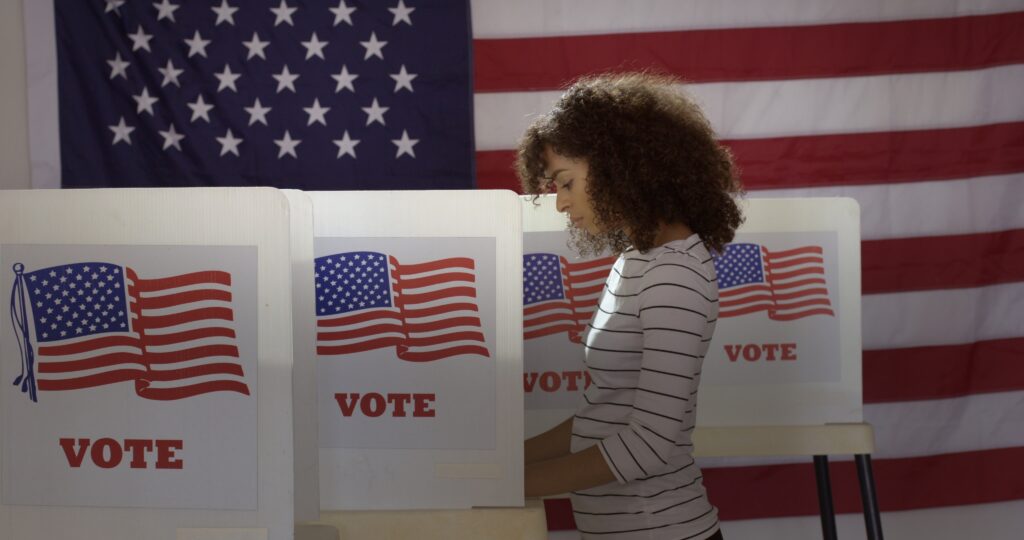As Republicans Attack Elections, State & Local Officials Must Defend Democracy

In late May, the Trump administration filed a lawsuit against North Carolina seeking to sow discord and confusion about the state’s voter rolls. Echoing the failed arguments of extremists who tried to overturn the 2024 Supreme Court election, the lawsuit is a blatant attempt to make it harder for eligible North Carolinians to participate in future elections.
On Tuesday, the state’s Republican-controlled election board responded to the lawsuit with a plan that risks disenfranchising nearly 100,000 voters.
Such actions demand a response. Democracy will only continue to thrive as long as patriotic Americans — including state and local officials of all parties — defend it.
The question raised by such anti-democratic actions is not whether we will have future elections; it is whether those elections will be free and fair.
The danger lies in efforts large and small — from the states to Washington, D.C. — to chip away at election integrity.
Democracy will only continue to thrive as long as patriotic Americans — including state and local officials of all parties — defend it.
The latest North Carolina lawsuit followed failed attempts to overturn Justice Allison Riggs’ state Supreme Court seat victory, which she won by a 734-vote margin. It took six months and the ruling of a federal judge before Republicans finally relented, dropping demands to retroactively change how votes were counted.
The most obvious way to counter these efforts is to win elections by such a wide margin. We saw that happen in another state Supreme Court election: Wisconsin.
Yet blowout elections are not always possible. In a functioning democracy, election integrity must mean respecting the will of voters, whether they elect a candidate by a million votes or just one. We cannot allow yesterday’s election denialism to morph into tomorrow’s election negation.
While North Carolina extremists tried to deny the will of voters after the fact, some in Congress want to prevent Americans from participating at all.
Passed by the Republican-controlled House earlier this year, the SAVE Act erects onerous burdens designed to make it harder for Americans to register to vote. Despite the fact that voting by non-citizens is virtually non-existent, the SAVE Act would require Americans to present proof of citizenship — in person — to register (or re-register). For millions of Americans, this documentation is difficult or expensive to obtain. And the burden is greater for roughly 80 percent of married women (69 million Americans) who changed their name.
Further, the in-person requirement for providing papers would essentially remove the way the majority of voters register — including through the mail, online and at other government offices, like the DMV. Americans living in rural areas or on Tribal lands might be forced to travel hundreds of miles to the nearest government election office to present their papers.
Michigan Secretary of State Jocelyn Benson has pragmatic advice for state and local leaders.
“This is the moment for states – who have always been the laboratory of democracy – to step up and lead,” she said recently. “We need strong Voting Rights Acts at the state level to protect everyone, no matter who they vote for.”
There are three concrete steps elected officials of both parties can take over the next 18 months to defend democracy.
First, stand up and speak out. Despite deceptive rhetoric from some, American elections are safe, secure and fair. Data shows that voters trust state and local elected officials, giving their voice even more credence on key issues. Republicans, Democrats and independents must tell the truth about elections. Election officials can embrace transparency, including inviting the media and skeptics to witness voting machine tests before elections, as many states and localities already do. Not all skeptics are acting in bad faith, and elected leaders can reassure them and others that elections are secure, and that every eligible citizen must have the opportunity to participate without unnecessary burdens.
Second, register voters everywhere. Local leaders can erect voter registration kiosks in numerous places, from City Hall to libraries to local recreation centers. Voter registration is the front door to democracy, and that door must be open as wide as possible. State and local elected officials are ideally situated to make this happen. It’s as easy as offering parents the chance to register as they sign up their daughter for Little League. Throughout American history, intense voter registration efforts have been a sign of a healthy democracy.
Third, resist fatalism. The fight against the flood of misinformation on these issues may seem daunting, but democracy defenders, like Minnesota Secretary of State Steve Simon, show us the way forward:
“Our democracy is quite resilient and I don’t want people to lose faith and lose hope,” Simon said recently. “These institutions were built to last. They were meant to last. They will last, not automatically, but because we will make it so.”
American democracy has been the envy of the world for centuries, and we must fight to retain that legacy. We can — and will — prevail.
Debbie Cox Bultan is the founding CEO of NewDEAL, a selective national network of 200+ state and local Democratic elected officials
David Pepper is a lawyer, writer, political activist, former elected official, and adjunct professor, and served as the Chairman of the Ohio Democratic Party between 2015 and 2021.